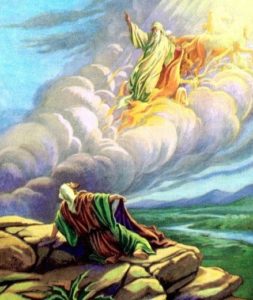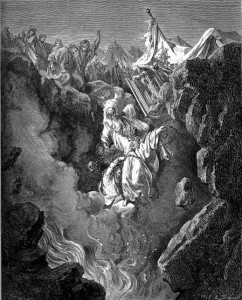
‘Elijah Taken Up to Heaven’
The Midrash famously comments on the eponymous subject of this week’s parasha that “Pinchas is Eliyahu” (Yalkut Shimoni I, 771). This statement is echoed throughout rabbinic texts and, with minor exceptions, all agree that Pinchas and Eliyahu were one and the same person. There are many reasons for this. With Pinchas, we read that God gave him a blessing of peace and “eternal priesthood”, suggesting that Pinchas would forever be a kohen. We go on to read how Pinchas was the kohen gadol for centuries, throughout the period of Judges, and the Tanakh never records his death. Meanwhile, Eliyahu appears in the Tanakh quite suddenly without any background information, genealogy, or patronymic. He goes on to avoid death and be taken up to Heaven in a fiery chariot.
Most tellingly, we find a unique Scriptural statement used in relation to these two figures, and no one else. Pinchas is described as having stood up zealously for God (בקנאו את קנאתי, Numbers 25:11), and Eliyahu uses the same words when speaking to God, saying he was zealous for God (קנא קנאתי, I Kings 19:10). The Sages conclude that they must be one and the same zealot! If that’s the case, why and how did Pinchas become Eliyahu? Continue reading

